
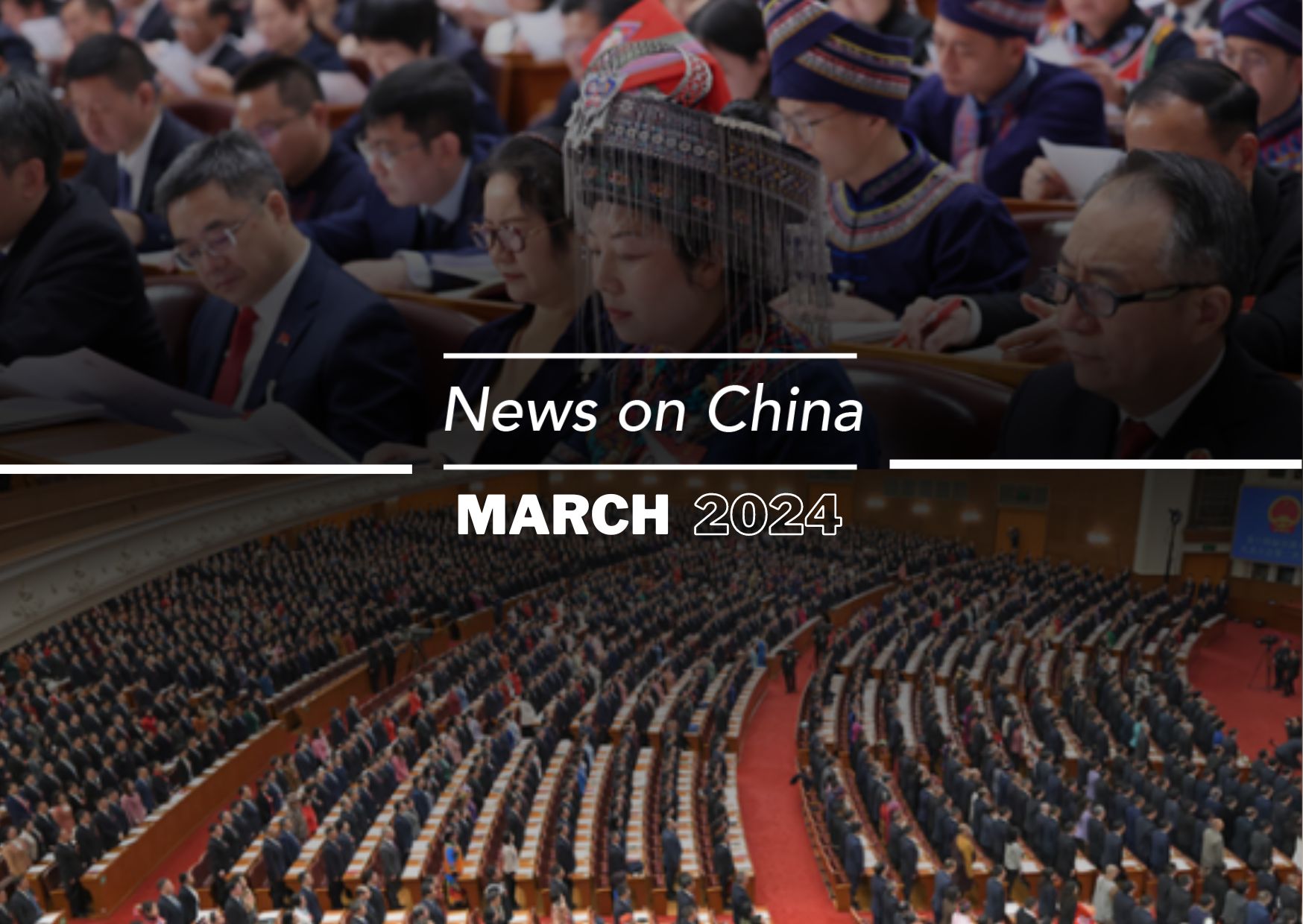
Today we recommend the song “Cold War“ by Feezy, a Chinese rapper who studied in the United States and seeks to dispel stigmas about Chinese people and life in China.
If you’re short on time, here’s what you need to know:
- “New quality productive forces” concept at center of Two Sessions 2024
- Hong Kong passes its own national security law
- China-Africa relationship moves towards industrialization and mineral development
- China-Australia relations warming up
- Gala 3.15, an annual TV show, exposes scams and false advertising of brands and companies
The Two Sessions of 2024
The Two Sessions just took place this past month in Beijing, a central venue for the formulation of the country’s policies and overall direction each year. The National People’s Congress session began with the government’s 2023 management report and 2023 goals, presented by Premier Li Qiang.
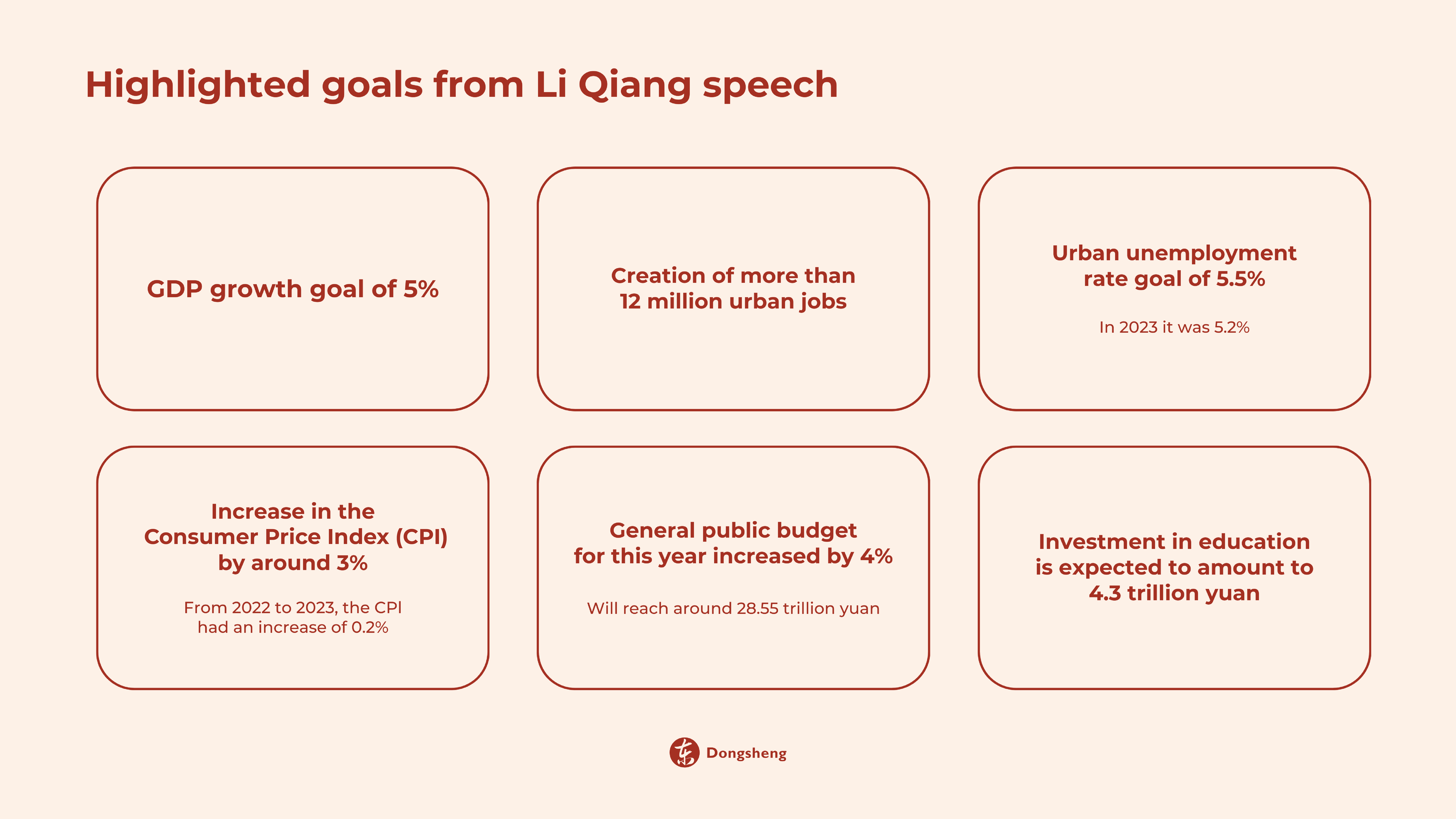
The concept of the “new quality productive forces” was at the center of the sessions of both the National People’s Congress (NPC) and the Chinese People’s Political Consultative Conference (CPPCC).
This idea was proposed by Xi Jinping last year, and refers to productivity led by innovation and “free from the traditional mode of economic growth.” “Efforts in this direction should never be confused and [financial] bubbles should be avoided. We should also refrain from following a one-size-fits-all model”, Xi Jinping said at a meeting of the Jiangsu provincial delegation at the start of the Two Sessions.
The leader’s mention of “bubbles”, can be read as a reference to the real estate sector. At the end of 2017, he stated that “houses are for living, not for speculation”. From that moment on, lending in that sector began to fall until 2020, when China instituted the “three red lines policy“, a policy designed to reduce the level of indebtedness of companies in the sector.
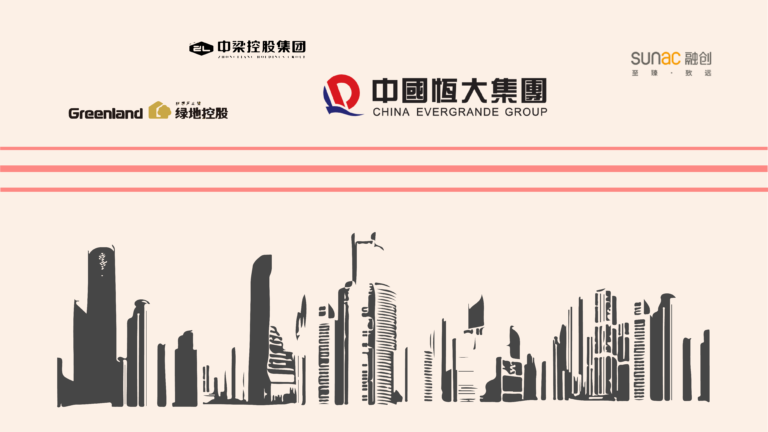
The “three red lines” caps companies’ ratio of debt-to-cash and equity and assets, and promotes sustainable growth of the sector.
Data from China’s central bank in 2023’s third quarter shows that there was a year-on-year increase of 30% in bank loans to industry overall. The real estate sector, however, received an increase of less than 5%, in contrast to previous decades.
In comparison to the previous five years, while bank loans to the real estate sector continued to grow, the Chinese government has changed their investment strategy, allocating more investment to industrial production and less to speculative sectors such as real estate.

In some ways, last year’s Two Sessions had prioritized a similar idea but under the term “high quality development”. However, the use now of “productive forces,” which is a classic concept of Marxism, may be reflecting a debate and ideological changes within the CPC.
The NPA session also approved the new Organic Law of the State Council, which had not been amended since 1982. The State Council remains the highest administrative body (the NPC being the highest organ of power). The change also included the president of the People’s Bank of China as a member of the State Council.
Hong Kong passes its own national security law
After decades in the making, Hong Kong’s Article 23 security law comes into effect. The article is part of the Special Administrative Region’s Basic Law – or mini-constitution – and was required under the terms of the return of Hong Kong from Britain to China 27 years ago. The first attempt to legislate Article 23 failed in 2003 in the face of massive protests by people in Hong Kong who feared the legislation would harm their rights and freedoms. In 2020, Beijing implemented the first national security law, which addressed four main crimes: secession, subversion, terrorism, and collusion with foreign forces. Since then, 291 arrests have been made for threatening national security, with 174 individuals and five companies charged and 112 people already convicted or awaiting sentencing.
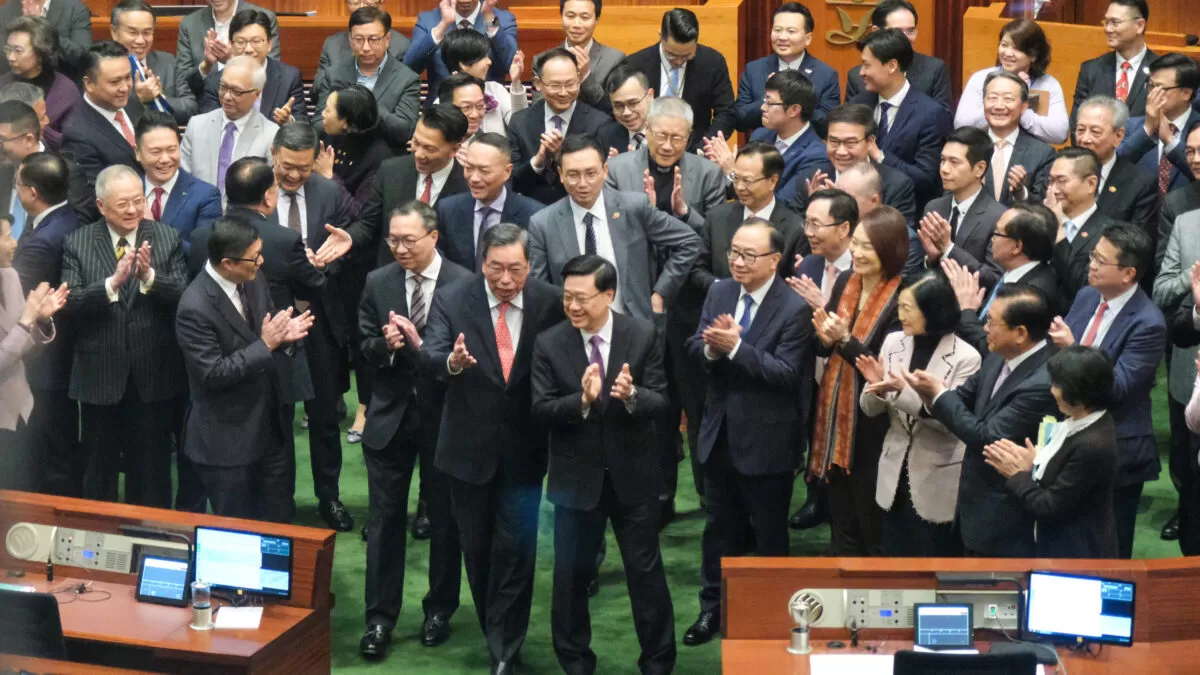
John Lee Ka-chiu, Executive Chief of Hong Kong, and lawmakers celebrates security law approval [Chen Yongnuo/China News Service]
Now, the new local law adds the crimes of treason, insurrection, theft of state secrets and espionage, sabotage endangering national security, and external interference.
Contrary to Western criticisms, the new penalties are largely in line with those of other major common law jurisdictions, including the US, UK, Australia, Canada, Singapore, and New Zealand.
In contrast to 2003, when the law had about 53% support, now more than 98% of the population agrees with the legislation. Some groups, such as journalists’ associations, expressed concern about the broad nature of some of the definitions included in the law, such as “external forces”, “state secret” or “sedition”.
Among the first consequences, Radio Free Asia, which was founded by the CIA, will leave its Hong Kong offices where it is based.
China’s geopolitical vision for 2024
On the sidelines of the Two Sessions, Wang Yi, the Minister of Foreign Affairs and member of the Politburo of the CPC Central Committee, gave a press conference covering topics such as the South China Sea, China’s relationship with different countries and blocs, the genocide against the people of Gaza, the crisis in Ukraine, the expansion of the BRICS, among other geopolitical issues.
Wang Yi reaffirmed that China “was, is, and always will be” a member of the Global South, highlighting its growing importance, noting that the share of the Global South in the world economy is currently 40%. That figure was 19% in 1990.
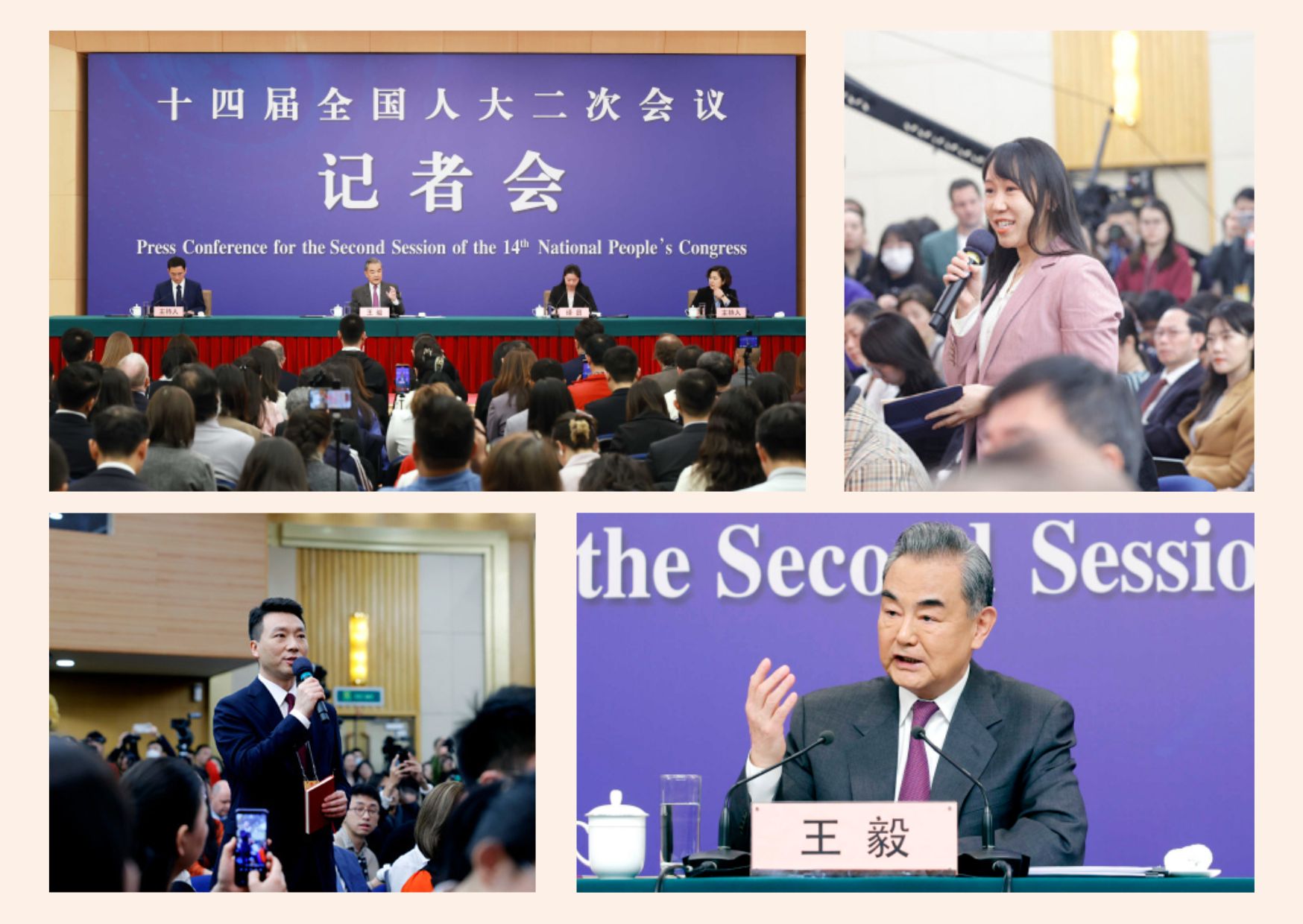
“The Global South has ceased to be the silent majority and has become a crucial force for the reform of the international order and for the hope of a world with unprecedented changes in a century,” the Chinese Foreign Minister said.
On the increasing technological restrictions imposed by the U.S. on Chinese industry, Yi acknowledged that since the meeting between Xi and Biden in San Francisco, California, last year, relations have improved, but stressed that “the U.S. continues with its misperceptions about China and they have not effectively fulfilled their commitments.”
“Repressive measures against China are applied one after another, the list of unilateral sanctions is increasing and false accusations are completely absurd,” he said, probably referring, among others, to allegations of forced labor in Xinjiang, for which the U.S. banned imports of cotton and tomatoes from this region.
“If the U.S. always says one thing and does another, where is its credibility as a great country? […] If the U.S. only wants to preserve its own prosperity and does not allow the fair development of others, where is international justice?” he asked.
China-Africa relationship moves towards industrialization and mineral development
Within the framework of the Forum on China-Africa Cooperation (FOCAC), established in 2000, China pledged to work with Africa to overcome obstacles to development such as infrastructure deficits, training of skilled workers, and lack of financing. This momentum generated thousands of Chinese companies to set up shop in Africa bringing with them thousands of Chinese migrant workers, reaching a record 263,000 across the continent by 2015. This peak also coincided with the pinnacle of Chinese investment in Africa.
By the end of 2021, the official number of Chinese workers in Africa plummeted to 93,000, mainly due to the decline in funding for infrastructure projects, the effects of the pandemic, and because Chinese companies increasingly hire local workers, many of whom are trained by Chinese migrants. According to data from John Hopkins University’s China-Africa Research Initiative, by 2022 that number reached a new low of 88,371.

In 2022, the top five countries with Chinese workers were the Democratic Republic of Congo (DRC), Algeria, Egypt, Nigeria, and Angola, which accounted for 42% of all Chinese workers in Africa. In Algeria and Angola, almost 90% of the number of registered Chinese workers have left. This does not include informal migrants, such as private traders, investors, and other financial services workers.
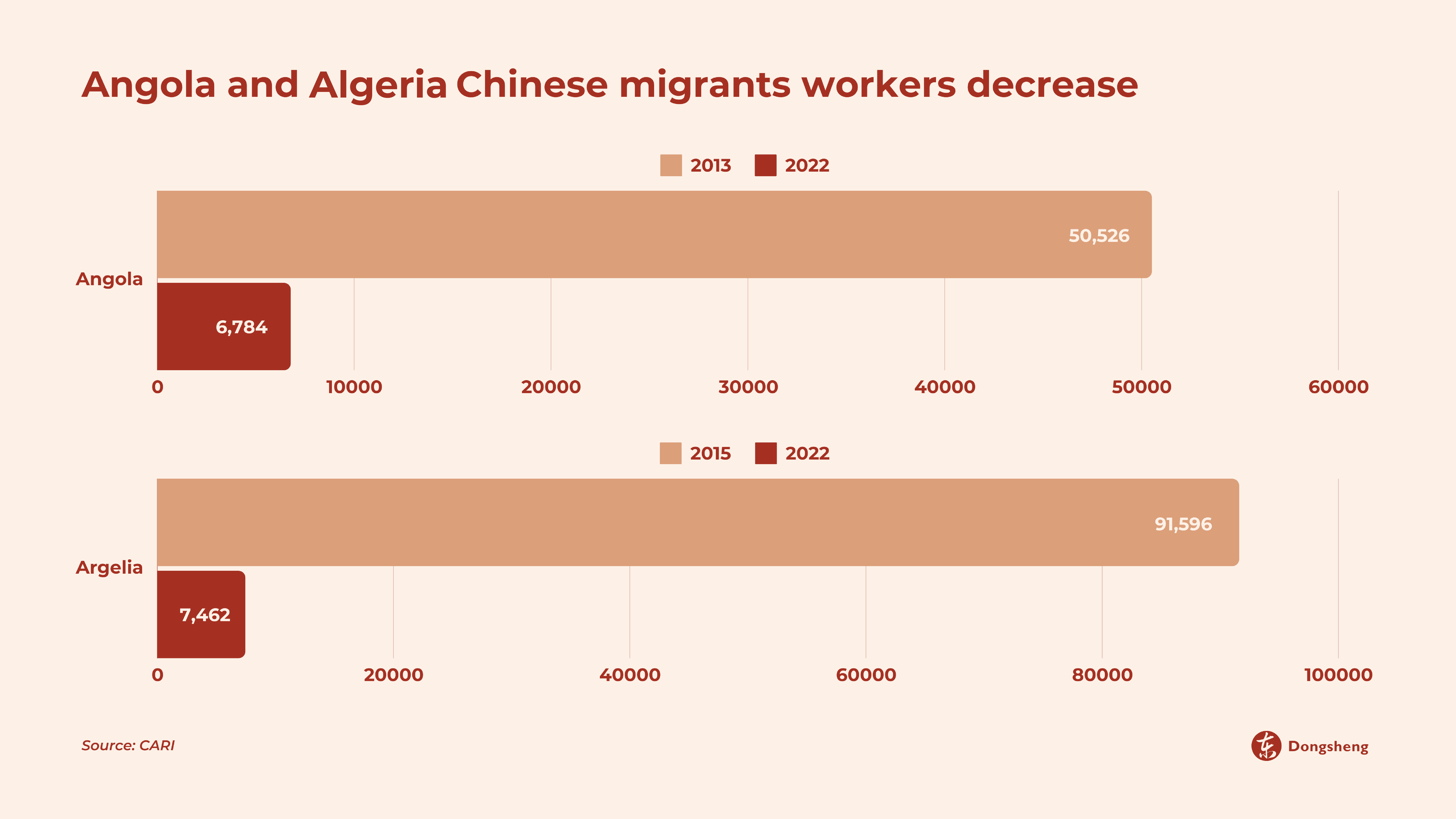
Despite the decline in infrastructure projects and the presence of Chinese workers on the continent, trade ties are far from cooling. Rather, they are taking a different direction, more oriented towards industrialization and the extraction of natural resources such as minerals based on the explicit request of African countries at last year’s China-Africa forum. Until a few years ago, due to the inadequate infrastructure, companies interested in, for example, iron ore, first had to build ports and roads to be able to start production. After the West’s failed attempts to support Africa’s development, the Belt and Road Initiative investments were key to building infrastructure such as roads, ports, airports, and railroads.
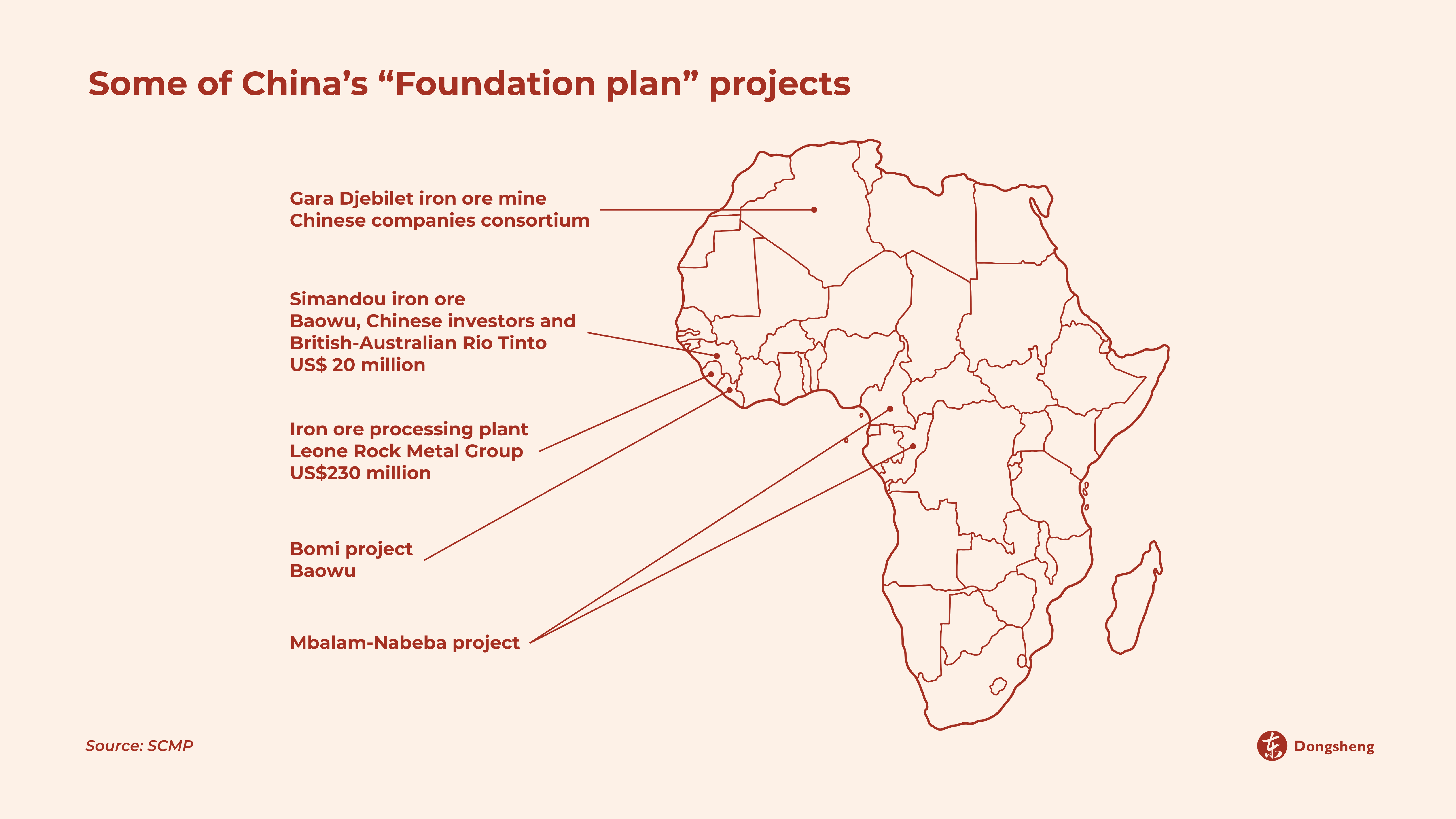
Contrary to the continental trend, Egypt and the DRC have seen an increase in Chinese workers in recent years, precisely because bilateral projects in those countries do not only involve infrastructure. In Egypt, Chinese companies are developing massive projects in the Suez Canal and in the new administrative capital in Cairo, while mining is the focus in the DRC. In mid-March, Angolan President Joao Lourenco visited China, and talks focused on deepening cooperation in core areas such as energy and mining.
China moves ever closer to the Palestinian cause
China continues to increase its support for the Palestinian cause, after asserting the Palestinians’ right to armed resistance at the International Court of Justice last month. At the Two Sessions meeting, Foreign Minister Wang Yi reaffirmed China’s position in support of the creation of an independent State of Palestine, full Palestinian membership in the UN, and the establishment of a peace conference to set an agenda for a two-state solution.
On March 22, China and Russia vetoed a resolution calling for a permanent ceasefire in the UN Security Council. Chinese Ambassador Zhang Jun criticized the text proposed by the United States (which has consistently vetoed similar proposals) for not clearly stating its opposition to a planned Israeli military operation in Rafah. Just three days later, another resolution calling for an immediate (non-permanent) ceasefire for the period of Ramadan was finally approved. The proposal was drafted by the 10 non-permanent members of the Security Council and approved by 14 members, with China and Russia playing a key role. The United States abstained because it did not explicitly condemn Hamas.

Isma’il Haniya’s meeting with Wang Kejian [Telegram.me/Hamas Movement Official]
In mid-March, Chinese Foreign Ministry Ambassador Wang Kejian met with Hamas Political Bureau Chairman Isma’il Haniya in Qatar. Hamas stated after the meeting that “China, unlike the United States and some European countries, recognizes it as a legitimate part of the Palestinian fabric.”
Finally, the Yemeni Ansar Allah (“the Houthis”), who after Israeli attacks on the Gaza Strip began to prevent the movement of commercial ships in the Red Sea, announced that they will allow German, Russian, and Chinese ships that are not bound for Israel to pass. Mohammed al-Bahiti, a member of the Ansar Allah politburo, said that “Chinese and Russian ships are not targeted. They are not our target.”
China-Australia relations warming up
China’s Australian coal imports increased by 3,188% year-on-year reaching US$1.34 billion in the first two months of 2024, after having been at zero in January 2023. Thus, Australia is once again China’s main coal supplier, displacing Russia whose share fell from almost half to 22%. In January and February, Australia accounted for 24% of total coal imports; in 2019, it had reached 60%. By 2022, Australia’s market share had fallen to 1.5% because of trade restrictions resulting from increased tensions between the two countries.

Following Prime Minister Anthony Albanese’s election victory, who had sought to improve relations, China removed tariffs on Australian barley last year and resumed coal imports in February last year. These purchases have no import tariffs as both countries are members of the Asia-Pacific free trade pact.
China’s lithium battery exports to Australia soared 90% year-on-year to over US$95.8 million. Australia’s wine imports are slowly recovering, reaching a 0.6% share in the first two months of the year, a far cry from the 37% they had reached in 2019.
Beijing imposed tariffs of up to 218% on Australian wine in March 2021. On his first visit in seven years to Canberra, Chinese Foreign Minister Wang Yi met with his counterpart Penny Wong and announced that wine import restrictions are currently under review. Both officials announced that Premier Li Qiang will visit Australia.
China has oversupply of steel and Brazil and Mexico launch anti-dumping investigation
China’s steel exports reached an eight-year high, and in the first two months of this year increased by 32.6% to 15.9 million tons. Steel exports in 2024 could even surpass those of last year, when they reached a seven-year high of 90 million tons. China produces around 55% of the world’s steel.
At the same time, countries such as Mexico, Brazil, Vietnam, and Thailand have launched various anti-dumping investigations into Chinese exports. Dumping is the practice of selling a product below cost in order to eliminate competition and take over the market. Mexico, in particular, is acting under pressure from the United States in terms of sanctions against China. Already in August last year, Mexico imposed tariffs of between 5% and 25% on imports of hundreds of products from countries with which it does not have a free trade agreement, China being one of the most affected countries. Now, the Mexican Ministry of Economy imposed a provisional countervailing duty of 31% on Chinese producers of steel nails and tariffs of between 3% and 12% on steel balls imported from China after concluding another anti-dumping investigation.
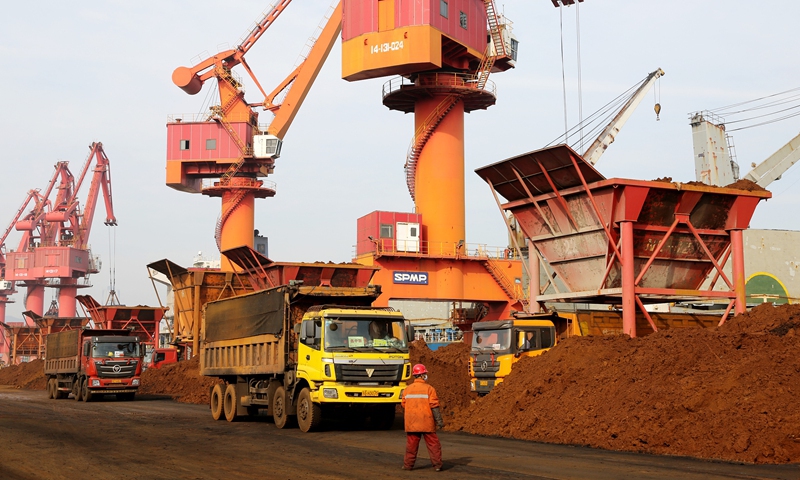
[VCG]
Brazil, on the other hand, initiated at least six investigations at the request of domestic manufacturers who alleged that between 2022 and 2023 imports of certain types of carbon steel plate from China increased by almost 85%.
Brazilian steelmakers have asked the government to impose tariffs of between 9.6% and 25% on imported steel products. China’s total steel and iron imports increased from US$1.6 billion in 2014 to US$2.7 billion last year.
It remains to be seen how this massive increase in China’s steel exports will affect its relationship with other Global South producers.
China issues “ultra-long” term bonds
The new housing model, a top objective for 2024, focuses heavily on state-provided affordable housing. Under the new strategy – announced at a meeting presided over by President Xi Jinping in December – the State would take over a larger portion of the real estate market, which for years has been dominated by the private sector. Premier Li Qiang announced the issuance of “ultra-long” term bonds for 1 trillion yuan (US$139 billion), pointing to an intensification of government spending to support scientific and technological innovation, integrated urban-rural development, and food and energy security. This measure, along with the new real estate model, aims to offset the stepbacks of the sector in recent years. It is unclear whether the funds, or how much, might be transferred directly to local governments, amid the growing debt pressure that they are facing caused by the drop in land sales.
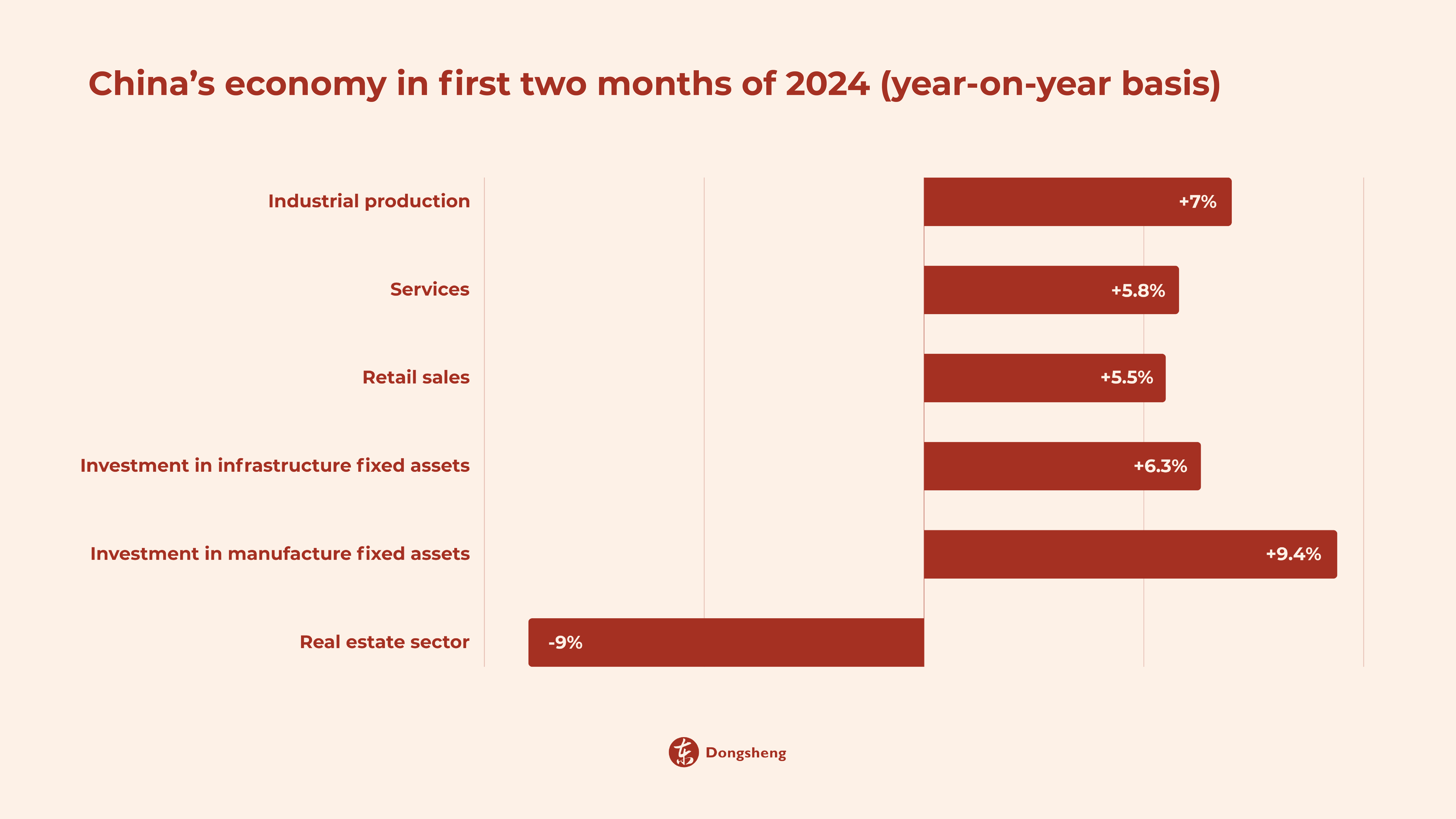
While “ultra-long” term bonds are not a novelty for China, massive issuance has only happened three times in the past: to recapitalize the four largest state-owned banks after the 1998 Asian financial crisis, to create a sovereign wealth fund at the China Investment Corporation in 2007, and to finance pandemic-related fiscal support in 2020.
Gala 3.15: the TV show that exposes scams and false advertising of brands and companies
As on every March 15, the state-owned CCTV broadcasted “Gala 3.15”. On World Consumer Rights Day, the program presents undercover investigations into various cases of irregularities, false advertising or scams.
This year, the complaints included a company selling defective fire extinguishers, food products prepared with pork cuts without the processing required by regulations, a liquor that issued false advertising claiming it could cure erectile dysfunction, and even a dating app that scammed users.
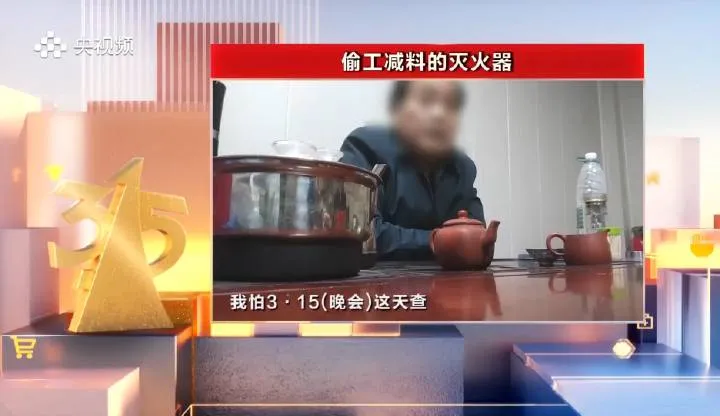
A clip from the 3.15 Gala showing a seller stating he is afraid of being investigated during 3.15
On the other hand, a day before March 15, the Shanghai Consumer Council launched an investigation into products sold by streamers that claimed to be healthy, low in fat, sugar, sodium or high in protein.
Of the 100 streamers that were investigated, 83 claimed to sell sugar-free products, but half of those products actually contained high levels of sugar. According to the report, the streamers evaluated received an average score of 5.44 out of 10. WeChat, the country’s most widely used app, ranked lowest among the apps with a score of 1.80, pointing to a “serious” deficiency in consumer rights protection.
Subscribe to News on China. The digest is published every Saturday in English, Spanish, and Portuguese.
Follow our social media channels:
- Twitter: @DongshengNews
- Telegram: News on China
- Instagram: @DongshengNews
- YouTube: Dongsheng News
- Facebook: Dongsheng News
- TikTok: @dongshengnews





